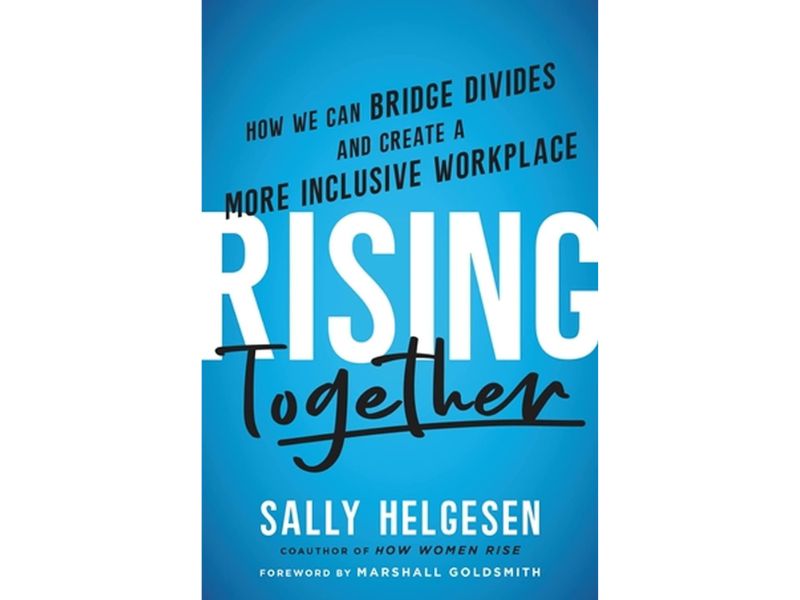
Burcin Ressamoglu, CEO, Sodexo Engage
Throughout the last decade, many companies have added diversity, equity and inclusion (DE&I) initiatives to their wider business strategies.
A 2021 survey of HR and corporate leaders in Europe commissioned by Workday found that 75% have a “dedicated” budget for DE&I, and 90% are “carrying out at least one initiative” for having data “to drive a strategic approach of continuous improvement.”
While there is still a long way to go, these numbers indicate positive progress. Despite this, I do still worry that many companies will put their DE&I initiatives on the back burner due to today’s harsh economic climate.
Not maintaining focus on DE&I initiatives now would be a big mistake for businesses, one that would harm both employers and their workforce. Instead, HR and the C-Suite should work together to prioritise DE&I.
DE&I is more essential than ever
Efforts to ensure that DE&I is always a priority are vital from a moral and ethical perspective, alongside the other benefits it can bring. Another key reason why DE&I needs to remain on the top of the agenda relates to the effects of the pandemic. Many underrepresented groups in the workforce faced adversity during the height of Covid-19. For example, PwC analysed data from the U.K.’s Office for National Statistics (ONS) and found that “inequalities faced by Ethnic Minority women were exacerbated by the pandemic, with their unemployment rates rising substantially more than for other groups.” The ONS released data in 2022 which showed this remains to be a reality, as those from an ethnic minority background are 10% less likely to be in employment. As such, continued support for these groups is incredibly important and businesses need to remain mindful they are providing this wherever possible.
The business case for DE&I
Innovation and growth are two other key reasons it’s of benefit for companies to invest in DE&I during tough economic times.
For example, research by McKinsey found that diverse companies “are more likely to financially outperform their peers.” Specifically, McKinsey’s analysis demonstrated that “companies in the top quartile of gender diversity on executive teams were 25% more likely to experience above-average profitability than peer companies in the fourth quartile” and that regarding ethnic and cultural diversity, companies “in the top quartile outperformed those in the fourth by 36% in terms of profitability.” This research makes it crystal clear for businesses that gender, ethnic and cultural diversity is imperative if they want to grow and remain competitive.
Ultimately, the numbers speak for themselves. DE&I can help companies go above and beyond to achieve their goals.
Embedding DE&I Key Performance Indicators (KPIs) into business strategy
While many factors go into creating, implementing and sustainable DE&I initiatives, two overarching factors are crucial:
The first factor is weaving DE&I into corporate culture and business strategy at every level. Company leaders and managers must become good role models who are respectful and fair to everyone and nurture an inclusive culture. Leaders in the C-Suite, in particular, must lead by example and put inclusivity at the forefront of their actions. They must show employees that they take DE&I seriously and treat everyone equally, regardless of background. This then sets the expectation that every single person at the company should mirror their actions and exhibit inclusive behaviour at all times.
Secondly, building and maintaining a culture of DE&I will likely require a higher degree of proactivity and leaders need to stay vigilant for any opportunities. For instance, when my company was hiring a new CIO, I did not start interviewing candidates until the list had a significant number of women candidates on it. I wanted to ensure we had worked to promote diversity within the hiring process, and I had a fair spread of candidates. We ended up hiring a female CIO, so this strategy paid off for us!
In terms of business strategy, companies need to set clearly quantifiable DE&I KPIs. For instance, a company might decide to implement a more inclusive recruitment strategy, but this needs to be linked to measurements which show whether this action was a ‘success’.
Sometimes, companies set KPIs that are not realistic and can’t be easily measurable as achieved. Unsurprisingly, they then fail to hit those target goals, and the team gets discouraged.
Good KPIs are those which are owned, defined and followed by the relevant internal stakeholders. To set realistic, measurable KPIs, leaders should honestly assess the current state of their industries and determine a pragmatic way they can make the most impact. For instance, if a particular industry currently does not have many women, one KPI could be to get a set number more women into the business.
When approached strategically and thoughtfully, DE&I initiatives can protect businesses, employees, communities and the economy. By keeping DE&I at the forefront of corporate efforts, we can create better business results—and better lives.








